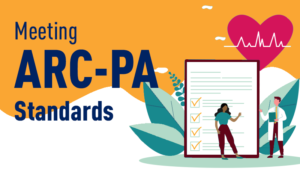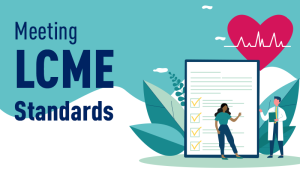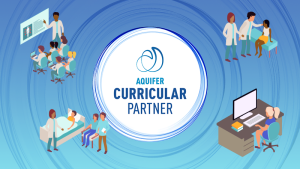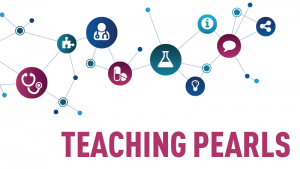Educator-to-Educator Tips & Strategies
Find out how your peers are making the most of Aquifer cases and teaching tools.
Find out how your peers are making the most of Aquifer cases and teaching tools.

Aquifer has introduced an innovative AI-powered feedbac … Read more

By: Joseph Miller, PhD | Curriculum Integration Special … Read more

Students provide consistently high rankings for Aquifer as reported in our five-star rating feedback data, but how and when cases are integrated into the curriculum can have a significant impact on their learning. Find out what themes emerged when we ask students what methods are most effective–and discover practical tips for assigning Aquifer cases based on student feedback.

Students provide consistently high rankings for Aquifer as reported in our five-star rating feedback data, but how and when cases are integrated into the curriculum can have a significant impact on their learning. Find out what themes emerged when we ask students what methods are most effective–and discover practical tips for assigning Aquifer cases based on student feedback.

Students provide consistently high rankings for Aquifer as reported in our five-star rating feedback data, but how and when cases are integrated into the curriculum can have a significant impact on their learning. Find out what themes emerged when we ask students what methods are most effective–and discover practical tips for assigning Aquifer cases based on student feedback.

At Florida Atlantic University Charles E. Schmidt College of Medicine, we are supporting our fourth-year students with flexible online elective rotations by adapting the model we created during COVID. Our virtual asynchronous electives–built with Aquifer cases and WISE-MD modules and implemented on the fly during lockdown–proved valuable to students, earning positive feedback and course reviews. With a few minor modifications, we are continuing this offering in response to student requests and the wide range of time-consuming requirements in the fourth year.

Touro University California Physician Assistant Program has been utilizing Aquifer cases since 2019. Originally, the cases were assigned to clinical year students to fill knowledge gaps and remediate rotations. Clinical year students found reviewing concepts in Aquifer cases during the virtual rotation block very valuable and found that cases improved in-person patient encounters.

At Florida Atlantic University Charles E. Schmidt College of Medicine, we are supporting our fourth-year students with flexible online elective rotations by adapting the model we created during COVID. Our virtual asynchronous electives–built with Aquifer cases and WISE-MD modules and implemented on the fly during lockdown–proved valuable to students, earning positive feedback and course reviews. With a few minor modifications, we are continuing this offering in response to student requests and the wide range of time-consuming requirements in the fourth year.

Like everyone else, our school needed to develop alternatives for our new fourth-year students due to the COVID-19 pandemic. With an uncertain return date for students at a range of clinical sites, we decided to build virtual, asynchronous electives that would help prepare students for their clinical rotations, and especially their Acting Internships. We leveraged a range of case-based online modules to cover different disciplines, including Aquifer and WISE.

Due to curriculum modifications related to the COVID-19 pandemic, our clerkship directors were charged with developing a virtual curriculum to keep students engaged in clinical learning activities while suspended from participation in face-to-face clinical care. Rather than develop a virtual curriculum for each individual clerkship…

It may seem unusual to design and implement a medical student course focused on high-value care in the middle of a pandemic. As third and fourth-year medical students were pulled from clinical duties at the urging of the AAMC, educators at the University of Virginia School of Medicine developed a two-week online course. The course introduced students to an integrative, comprehensive model of high-value care applicable to future clinical practice.